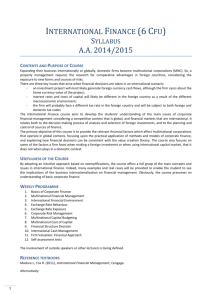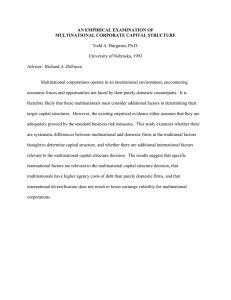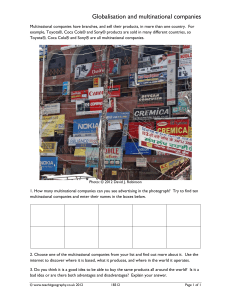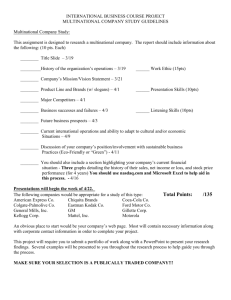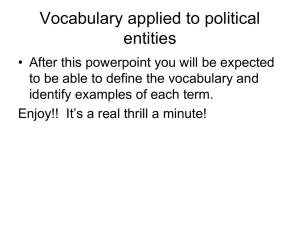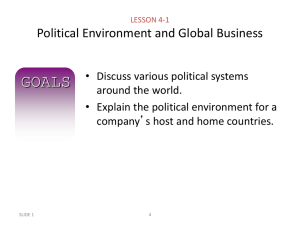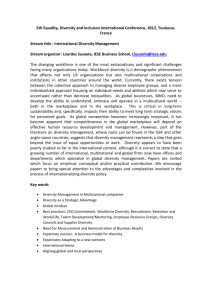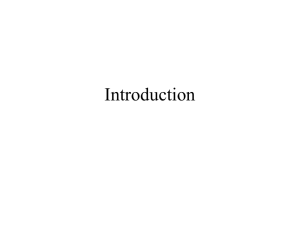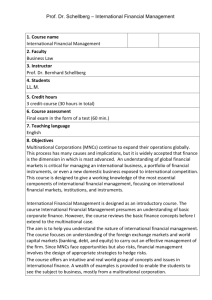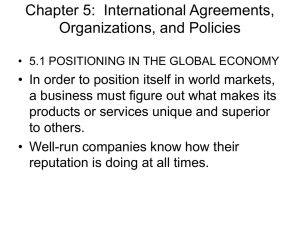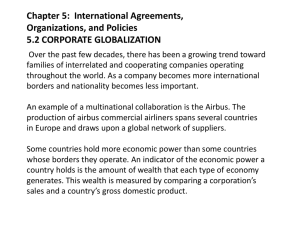Nations and States
advertisement
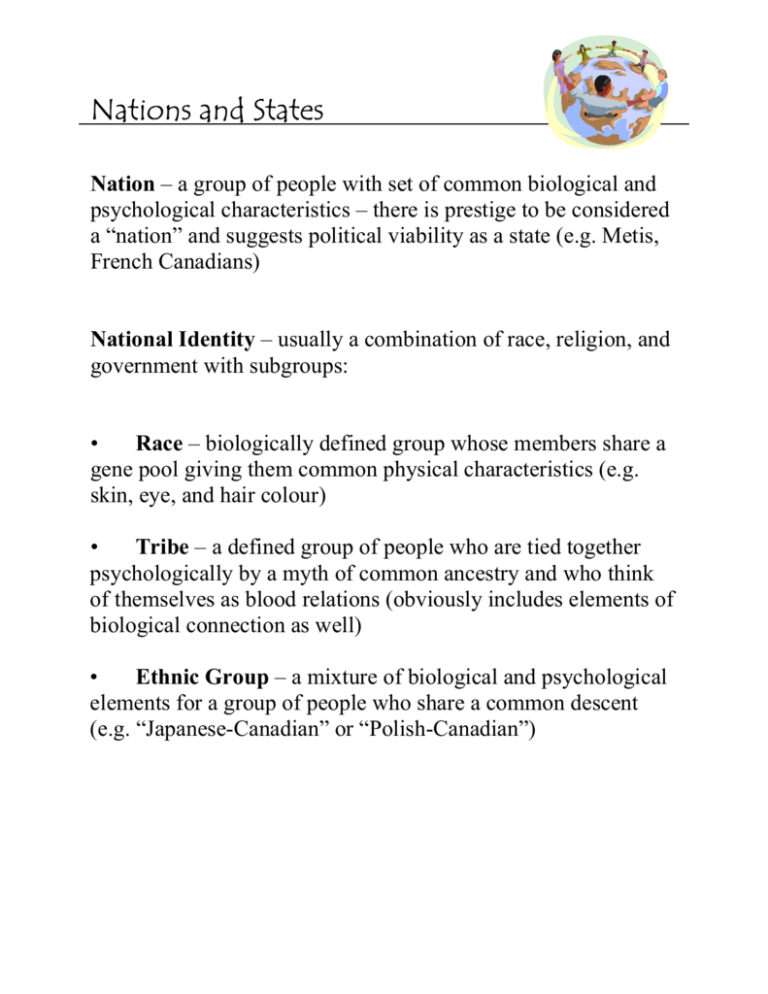
Nations and States Nation – a group of people with set of common biological and psychological characteristics – there is prestige to be considered a “nation” and suggests political viability as a state (e.g. Metis, French Canadians) National Identity – usually a combination of race, religion, and government with subgroups: • Race – biologically defined group whose members share a gene pool giving them common physical characteristics (e.g. skin, eye, and hair colour) • Tribe – a defined group of people who are tied together psychologically by a myth of common ancestry and who think of themselves as blood relations (obviously includes elements of biological connection as well) • Ethnic Group – a mixture of biological and psychological elements for a group of people who share a common descent (e.g. “Japanese-Canadian” or “Polish-Canadian”) State – self-governing political entity • Homogenous State – one culture e.g. United States • Heterogeneous State – many cultures – “multinational” e.g. Poland, Israel Nation-State – exists where common identities of a nation coincide with the boundaries of a sovereign authority • Binational State – e.g. Canada (originally) • Multinational State – e.g. India, former Soviet Union • Multistate Nation – e.g. The Koreas What is Canada? • homogeneous v. heterogeneous • one nation v. binational v. multinational?

